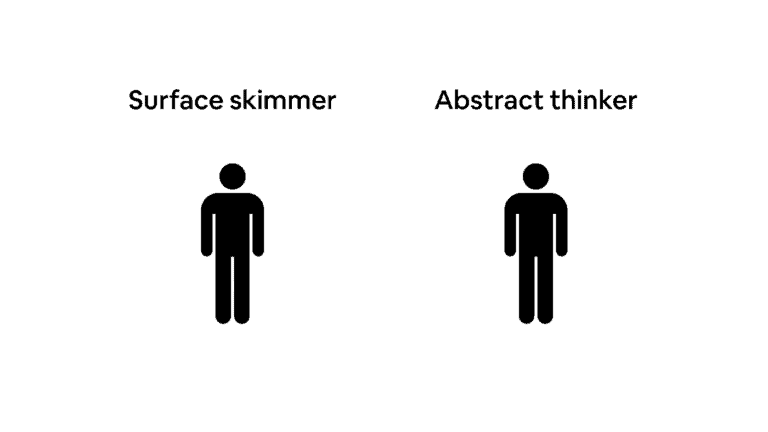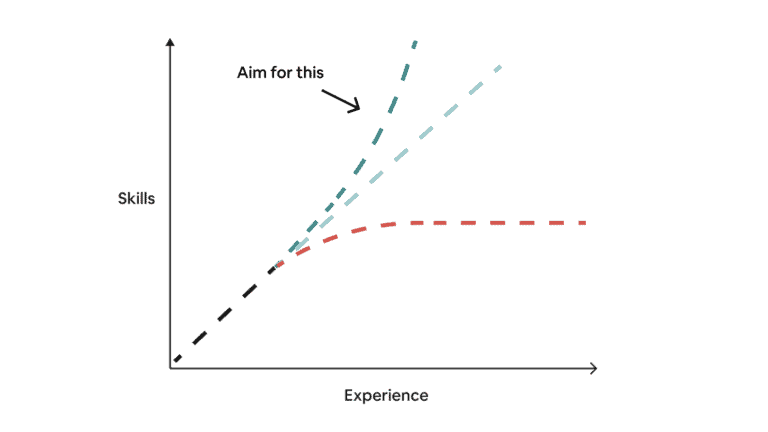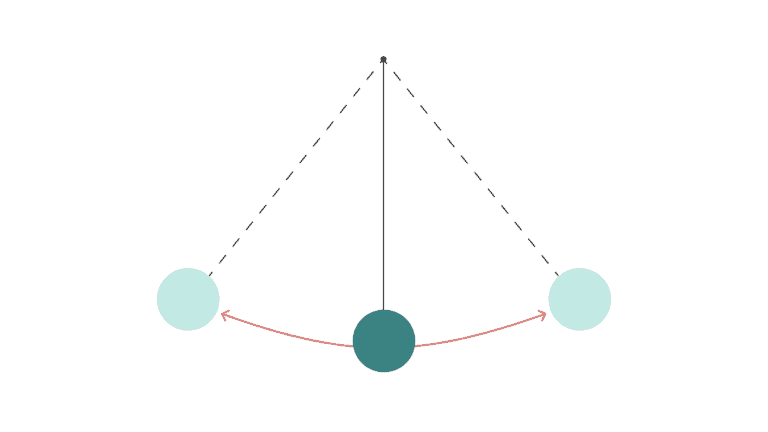In the world of “high-level” talent, you’ll run into two types of people:
1. The experienced craftsman
These are people who have years of experience doing in-depth, hands-on work in a particular field. They are so good at their crafts that they can abstract and generalize a vast amount of knowledge into principles, frameworks, and systems.
At this point in their career, their skills are best leveraged to build strategies and coach others, but they’ll also do a great job if you need them to roll their sleeves up and execute.
How to spot them: When discussing a high-level concept, they can zoom in to explain how a specific part works, provide concrete examples, and break down attributes unique to the current context.
2. The surface skimmer
These are people who avoid getting into details because they can’t. They hide behind phrases like “I focus on the big picture” or “I like to empower my team” whenever is convenient.
They become professional managers or coaches not because they’ve excelled in their roles, but because it is a great way to mask their lack of skills.
How to spot them: When you ask for details, they’ll try to shut down the conversation by saying “Well, {known_brand} and {expert} do this” (argument from authority) or simply punt the questions to someone who is on the ground executing. And when such a person doesn’t exist, it becomes a justification to hire one.
Ironically, Group 2 can be very good at convincing others that they know their stuff — sometimes even better than Group 1, who refuse to over-promise or over-sell their skills.
In some big companies, Group 2 makes the ideal middle manager. When there are more employees than work to do, they create additional layers to give an illusion of “productivity.” (See David Graeber’s Bullshit Jobs theory.)
But when these people try to do the same at series A or B startups, things will get ugly.
No, I don’t mean for them. They will do just fine by following the “Incompetent Leader’s Playbook.” But for the startups that hired them? It can be disastrous.
Unfortunately, even the smartest founders I know can get swayed by the logos on Group 2’s resumes and their interviewing skills, especially under investor pressure to bring in seasoned leaders.
If you are a founder who is hiring a functional leader for the first time, here’s my advice:
- Learn to do the job yourself first to grasp all the nuances and challenges involved.
- Press for detailed answers during the hiring process. Don’t be afraid to ask questions that seem too “tactical.”
- Put them through a practical take-home or live task. A work trial will also work.
- Have trusted experts to offer a second opinion.
By doing so, you’ll be better equipped to distinguish between those who can actually do the work and those who are just good at talking about it.




